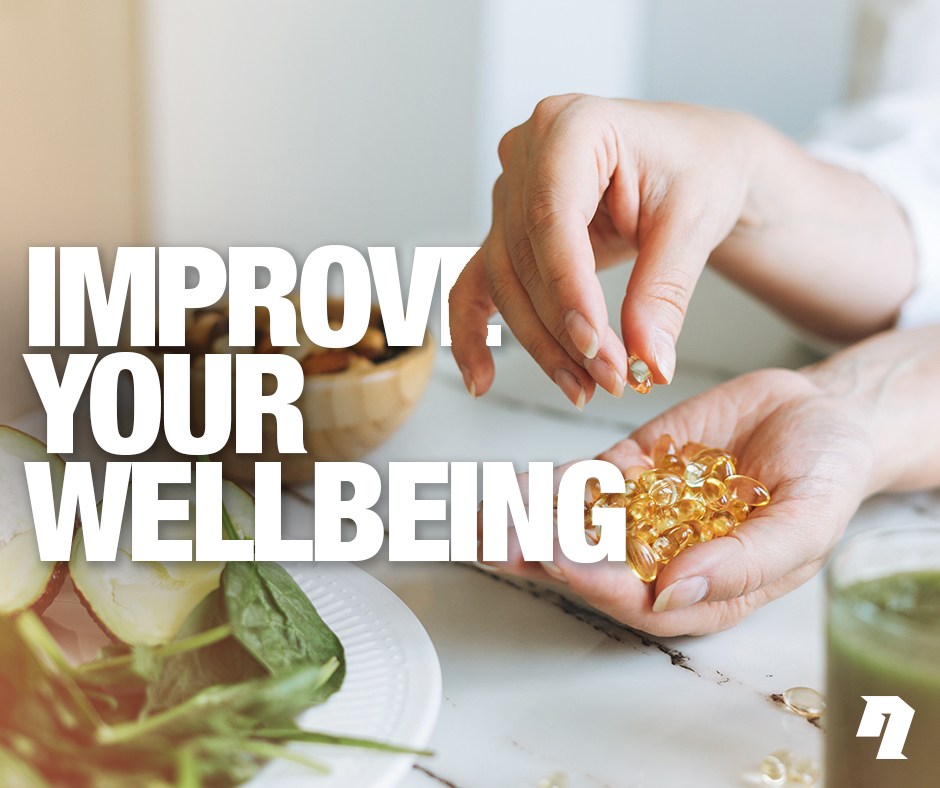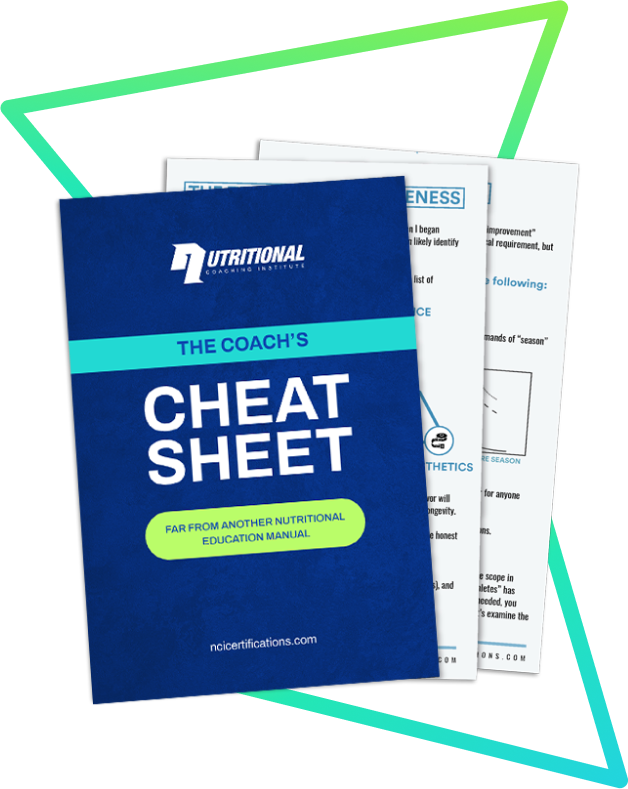VITAMIN D
What does it do? Why should I take it?
Vitamin D is an essential nutrient that helps the body to absorb calcium, maintain bone health, and prevent cramps and spasms.6 It falls into the “fat-soluble” family of vitamins, which simply means they are absorbed and stored in fat tissue. This also means that eating a little bit of dietary fat can help with the digestion and absorption of Vitamin D.6 Vitamin D3 is the most supplemented category of vitamin D and is understood to be the type referenced when discussing supplementation.
How much do I need?
Your body can make this so getting outside for at least 10-15 minutes with 40% of your skin exposed to the sun can help increase your levels of vitamin D.8,9 If you’re not able to get enough vitamin D, supplementation can be an alternative to introduce more of this helpful nutrient into your system. Supplementation should be discussed with your physician during your next physical to optimize your individual recommendations. Ranges generally considered safe and effective span from 700-1,000 IU’s per day. 7,8
Where do I find it?
You’ll want to verify the manufacturing practices and look for companies that verify the ingredients listed on their labels. These supplements can be found on Amazon, a local health store, or supplement shop.

MAGNESIUM
What does it do? Why should I take it?
Magnesium is an important mineral, being the 4th most abundant mineral in the body. It is required for over 300 chemical processes including manufacturing DNA, stimulating protein synthesis and tissue growth, and even reproduction!10 Not getting enough magnesium can reduce how well your brain communicates with your muscles, mess with your blood pressure and insulin, and even your heart.10
You will want to make sure that you get enough magnesium to keep your brain, muscles, and hormones happy. Not only will you stay healthy, but you will also get better at anaerobic and aerobic exercise!
How much do I need?
4-6 mg/kg/day (Grober et al. 2017)
Where do I find it?
Water makes up roughly 10% of your intake. Green vegetables also provide a significant source of magnesium, along with nuts and seeds. Legumes, fruit, fish, and meat have a moderate amount of magnesium as well.
Vitamin D and Magnesium are essential nutrients that should not be overlooked when it comes to the health and well-being of your clients. By ensuring that we are getting enough of these nutrients through our diets or supplements, we can help maintain optimal health and prevent deficiencies and potential health complications. By taking care of our bodies today, we can pave the way for a healthier tomorrow.





